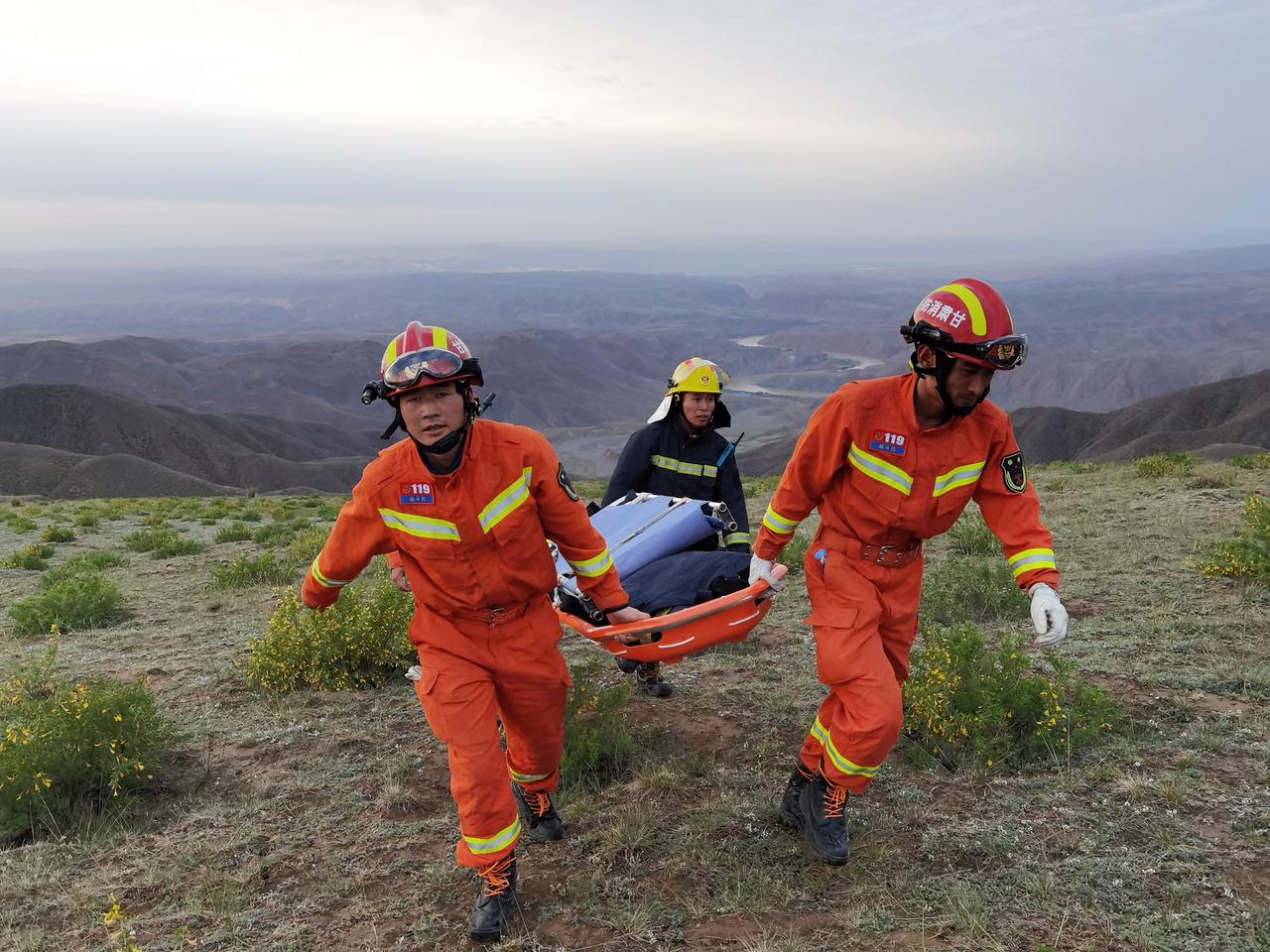Grim deaths spark outrage over China's haphazard 'marathon fever'
Sign up now: Get insights on Asia's fast-moving developments

Rescue workers as they work at the site where extreme cold weather killed participants of an ultramarathon race in Baiyin, China, on May 22, 2021.
PHOTO: REUTERS
SHANGHAI (AFP) - The deaths of 21 ultramarathon runners in China throw a light on an industry which is booming in the country but has suffered a series of controversies and embarrassments.
Hail, freezing rain and high winds were blamed for the deaths of the runners taking part in a 100km cross-country mountain race on Saturday (May 22) in the northwestern province of Gansu.
As authorities launched an investigation, Chinese social media erupted in mourning and outrage, questioning why organisers had not been better prepared for the extreme weather.
However, there has long been concern about the quality and organisation of some of the ultramarathons, marathons, half-marathons and other long-distance running events now taking place in China.
The government is heavily promoting exercise for all ages, and running has taken off in a big way with mostly middle-class competitors sporting the latest trendy gear and wearable technology.
Some participants want to boast of their achievements on social media or use it on job applications to boost their employment prospects. Others just want to keep fit.
According to media last year, citing Chinese Athletics Association (CAA) figures, the country hosted 40 times more marathons in 2018 than in 2014. The CAA said that there were 1,900 "running races" in China in 2019.
Landmark events like the Shanghai marathon regularly attract up to 38,000 runners.
State broadcaster CCTV said in an online commentary on Sunday that the Gansu tragedy was "a wake-up call for marathon events that have bloomed almost everywhere in China in recent years".
"Route planning, safety guarantees, medical preparations, emergency rescue, food supplies, etc., need to be precise and foolproof," said CCTV, also warning runners to "respect nature, respect science, cherish life".
'Run wild'
It is not the first time that what state media often calls "marathon fever" has made headlines in China for non-sporting reasons.
In 2018, at a half-marathon in the southern city of Shenzhen, 258 runners were found to have cheated - including many who took shortcuts.
Traffic cameras caught them darting through trees to join a different part of the race.
Then in 2019 a woman was filmed riding a green-coloured rental bike in the Xuzhou International Marathon in eastern China. She was ordered by race officials to dismount the bike, only to get back on again afterwards.
The CAA has attempted to clean up the sport, including handing out lifetime bans to three Chinese runners who cheated at the prestigious Boston Marathon in 2019.
Two of them presented forged certificates to reach the strict entry standard, while the third gave his bib to someone else to run for him.
Marathon organisers in China are now using facial technology to ensure that runners are identified correctly.
One CAA official previously told state media that some people have been swept up in China's marathon mania and were signing up for races despite being woefully unprepared and with little appreciation of what was involved.
That does not appear to have been the case with those who perished, reportedly of hypothermia, in Gansu, as elite runners were among the victims.
But the deaths have led to renewed calls for better regulations and organisation.
The General Administration of Sport, China's top sports governing body, has told event organisers across the country to improve safety.
An editorial in the Beijing News said safety has failed to keep pace with the exploding popularity of marathon-running and organisers - which include local authorities - are often more interested in attracting large numbers of competitors and making money.
"In short, the needs and enthusiasm of popular sports should be met and cared for, but events should not 'run wild' at the expense of safety," it said.


